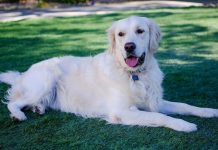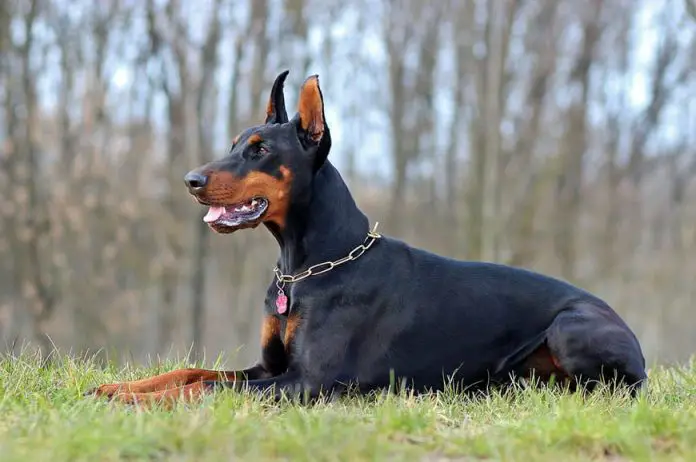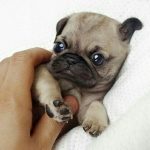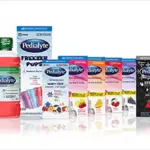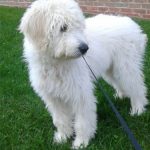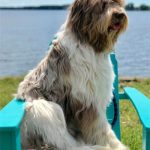A dog’s shedding level is one of the most important things to consider especially for people with a history of allergy to pet dander. Doberman Pinschers or simply Dobermans are among the breeds regarded as hypoallergenic because of their short coats.
However, not all short-coated breeds are automatically hypoallergenic. Some of them even shed more compared to dogs with long coats. Find out if Dobermans are a good choice for people with pet allergies.
The Dobermans’ Coat
A Doberman has a single and dense coat which requires minimal brushing so you don’t need to spend a lot of money for professional grooming. This involves brushing once or twice a week to get rid of the dead hair. Dobermans have natural oil in their skin, which keeps the coat shiny and healthy. Brushing your pet’s coat also distributes this oil and preserves the natural texture of the coat.
Always use a brush intended for smooth and short-coated breeds. The most versatile brush is the slicker brush. It is effective at preventing mats and tangles. Should you want a soft but straight bristle for your pet, consider a bristle brush.
Work your way against the hair growth and do it as gently as you can to avoid hurting the dog’s skin. Keep the strokes soft and short. This is an effective way to get rid of loose hair.
Bathing is not often required. However, because the Doberman is an active dog who always loves staying outdoors, it is recommended to bathe him every six weeks. If it rarely gets soiled or if you live in a cold region, you may bathe him once every four months.
Dobermans shed dark hair all year-round but the process is not as intense as that of double-coated breeds. These dogs are moderate shedders. With regular grooming and thorough cleaning, your dog’s shedding can be easily controlled.
Doberman Skin Issues
- Dryness – watch out for skin and coat dryness because it is a symptom of a thyroid problem. Dobermans are among the breeds that are most susceptible to hypothyroidism. If it comes with a sudden change in behavior, weight gain and hair loss; schedule an appointment with a vet for proper consultation.
- Parasites – a Doberman’s body is prone to all sorts of parasites, from fleas to worms and ticks which can get into the skin and cause discomfort. They can be prevented by ensuring the dog always gets clean water and avoiding mosquito bites.
- Skin infections – one of the common culprits of skin infections in Dobermans is Malassezia dermatitis. It can be extremely itchy and often characterized by redness. Their neck and throat may have an unusual odor.
- Seborrhoea – this is another cause of skin dryness and often comes with flaking and greasiness. It can cause extreme discomfort because it is itchy. Your vet will likely prescribe a special medication for treating the skin disorder.
- Pemphigus foliaceus – many Dobermans suffer from this condition, which is characterized by hair loss and crusts. Dogs with this disease should have a limited time under the sun, because exposure to sunlight can worsen it. It cannot be cured but the symptoms can be avoided through a number of treatments.
- Lick granuloma – excessive licking can injure your pet’s skin and may lead to deep skin calluses. When a dog has a minor wound, it should be treated immediately to prevent the Doberman from licking it.
Always look for signs of skin problems in your Doberman, like itching, redness, and hair loss. Because they have a short coat, they don’t have as much protection against dirt and sun rays compared to long-coated breeds. If you notice anything unusual in your pet’s skin or coat, call your vet or schedule an appointment.
Tips to Minimize Shedding
There is no way to stop any dog from shedding. It’s just natural for our pets to shed in order for healthy new hair to grow. Still, there are things we can do to reduce the amount of hair that could end up on our floor or furniture. Follow these tips to lessen the amount of loose hair from your buddy:
- Rub your pet with grooming gloves – not only will your pet love it but this will also distribute the natural oil in the Doberman’s coat, which keeps it healthy. This prevents skin problems that may contribute to excessive shedding.
- Brush him on a regular basis – this is important to control occasional shedding. Do it twice a week to keep the coat shiny. Gently brush using the necessary tool for short-coated breeds with soft hair.
- Bathe as needed – washing the dog more often than required can increase skin dryness. Short-coated breeds don’t need frequent baths. A good wipe in between cleaning may be enough to clean the dog.
- Serve foods rich in fatty acids – omega-3 and omega-6 promote a shiny coat. It has a few more benefits, like acting as an anti-inflammatory that prevents joint and heart problems.
- Clean up regularly – a heavy-duty and reliable vacuum should suction pet hair effectively. To completely remove the hair, follow up your vacuum cleaning with a steam mop.
- Use HEPA filters – these can help reduce allergen in the air. Pet dander is the leading cause of hypersensitivity to dogs and other furry animals. It is recommended for people often suffering from allergies, even if they don’t have pets at home.
Conclusion
Dobermans will shed all year-round and this is normal because they need to get rid of dead hair. There are ways to control it and following them will lessen pet hair all around the house. If you are a first-time pet parent, it’s not just the Dobie’s grooming levels that matter the most. This breed is actually not recommended for novice pet owners because it requires someone dominant.





